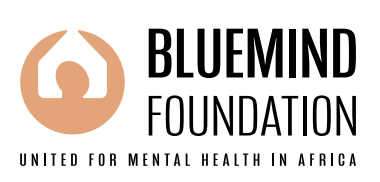OP-ED | Transforming Africa’s agriculture, By Tony Blair
Strengthening Africa’s agriculture systems will not only make the continent more self-reliant and resilient to future shocks, but will also boost global health, prosperity, and security. The international community therefore has both moral and self-interested reasons to support this process.

Over the next 30 years, Sub-Saharan Africa’s population will double to over two billion, and its economies will industrialize. Africa’s development will therefore be critical to the world’s future stability, prosperity, and health. Given this, the continent should be receiving much more international attention.
The COVID-19 crisis has highlighted a number of global vulnerabilities, including the uncoordinated nature of the world’s pandemic response, its inability to support the poorest countries and their populations in managing the economic fallout, and of course the weakness of existing health-care infrastructure. Leaders must now urgently address these weaknesses, alongside other major global challenges, ranging from climate change and rising inequality to technological disruption and global terrorism.
Moreover, fragile agriculture and food systems, particularly in Africa and other low-income regions, have exacerbated the pandemic’s impact. Unless addressed, these systems’ shortcomings could deepen any crisis in the decades ahead.
The argument for fundamental reforms is partly a moral one. The United Nations World Food Programme warns that the number of people suffering from acute hunger in low and middle-income countries – including in Africa – could almost double this year, to 265 million, as a result of the pandemic. Strengthening Africa’s agriculture systems is vital to making the continent more self-reliant and resilient to future shocks. Otherwise, economies will remain stagnant, limiting tax revenues and leaving welfare systems unable to support people through crises such as COVID-19.
But it is also in the enlightened self-interest of all countries – including members of the G20 and OECD – to ensure well-functioning agriculture and food systems in Africa and other poor regions. This is because food and agriculture are central to making the world’s health, economic, and security systems fit for the twenty-first and twenty-second centuries.
For starters, vibrant food and agriculture sectors are essential for preventing malnutrition – one of the leading global causes of illness – and strengthening them is important in managing pandemics as well. COVID-19 lockdowns and social-distancing measures failed in less developed countries with large informal economies, mainly because of concerns that such regulations would severely harm people’s ability to earn enough to feed their families.
Agriculture is also crucial to successful economic transformations. There can be no global economic stability, green economy, or eradication of mass poverty if African and other developing countries do not industrialize. And as the United States, Europe, and Asia have demonstrated, industrialization first requires an agricultural revolution, which Africa has yet to experience.
Bolstering global security, too, entails transforming agriculture and the food system. Terrorism feeds on the disenfranchisement of rural populations in regions like the Sahel, where people can gain more through illicit activity than through the lawful economy and public services.
Finally, revamping agriculture – particularly in Africa – is a precondition for sustainably feeding a global population that could increase to almost 11 billion by the end of this century.
Many African leaders are focusing on reforming agriculture – and making progress. Senegal’s development of rice and other subsectors, Ghana’s Planting for Food and Jobs program, and the work of Ethiopia’s Agricultural Transformation Agency are all excellent examples of strong government leadership in this field.
Given the right focus by governments, policymakers can identify agricultural sectors, which, with the deployment of technology and new practices, can attract investment, in turn spurring employment, economic growth, and tax revenues – thereby initiating a virtuous cycle of development. Investment and reform – both domestically and externally financed – can accelerate change.
For example, Ghana and Côte d’Ivoire need to process their cocoa into chocolate themselves, while Nigeria needs to mechanize its agriculture and transform its livestock sector. Mozambique needs to develop its various agricultural corridors, and Kenya has huge potential to be a global food-processing hub.












